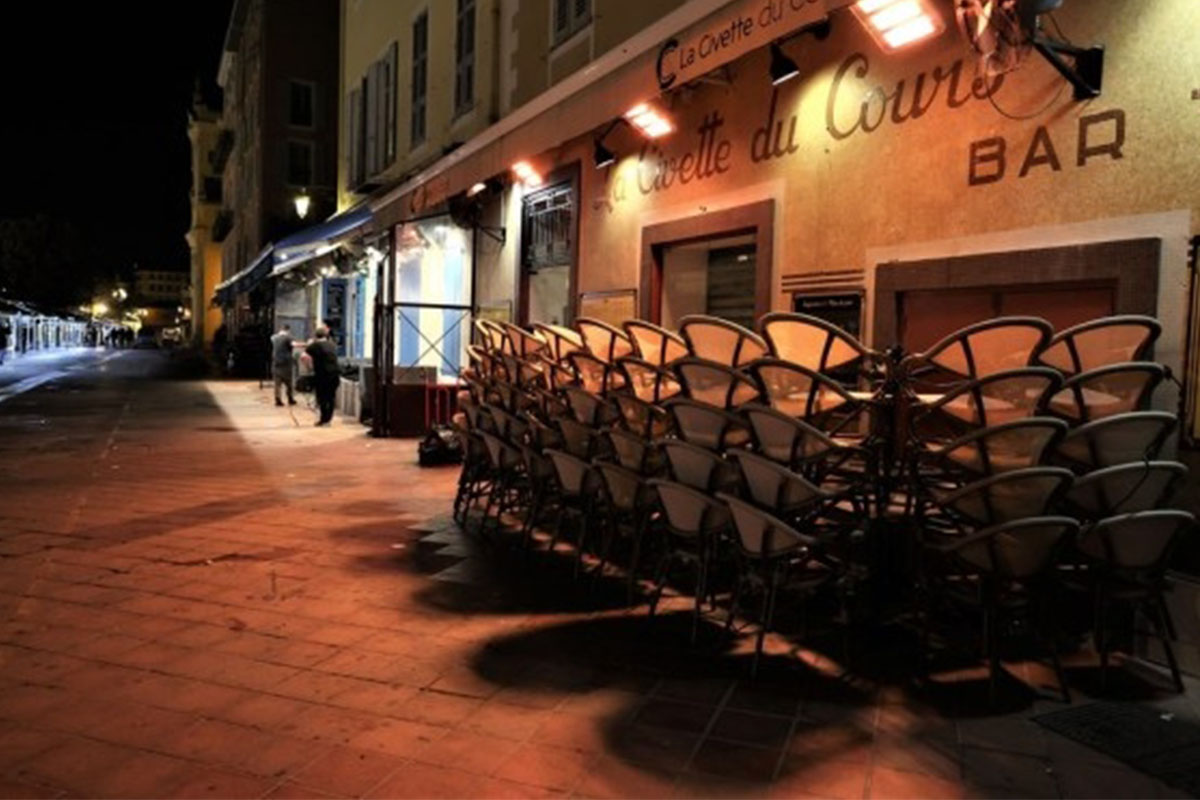Emmanuel Macron, the man who has led France since 2017, gave an ominous speech at a cabinet meeting before he left his country to attend the funeral of the recently expired Queen of England.
“What we are currently living through is a kind of major tipping point or a great upheaval … we are living the end of what could have seemed an era of abundance … the end of the abundance of products of technologies that seemed always available … the end of the abundance of land and materials including water”.
Advertisement
Macron’s portentous statement caught my attention because it announced with apparent candour, the end of something good. Used to the pronouncements of Pakistani leaders for whom abundance lies in some perpetually deferred future, I wondered what sort of political imperative could have goaded the French president to make such a declaration.
Things in Europe have been bad, of course, and the French have faced their own barrage of natural disasters in the form of fires and floods that have coursed up and down the country with fury. On the other end, the European Commission has warned that two-thirds of Europe is facing the threat of drought, perhaps the worst of its kind “for at least 500 years”.
With Russian President Putin last week adamant that natural gas supplies to Nato countries will remain suspended, Macron and his colleagues in the EU face the prospect of preparing resource-spoilt publics for an era of relative want. In modern times, France and Germany have hardly experienced winters defined by hypothermia and chattering teeth brought on by the inability to heat one’s home. Indeed, those sorts of winters are the stuff of literature, of a burgeoning rather than a dwindling Industrial Revolution.
The first factory workers of Europe experienced desperation as they migrated from farm to city to work in dingy and dark workshops and warehouses so that the “abundant” future whose end Macron has announced could be reached. It is also true that this Industrial Revolution that is spoken of so fondly in the West and in Europe was the product of looting, killing and pillaging all around the rest of the world.
The Europeans who were not factory workers and were not particularly wedded to life in the homeland were off to their colonies, gathering up natives in Asia and Africa and many other places and enslaving them. The countries that were occupied were turned into exporters of raw material — the intentionally undiversified economy insurance against people rising up and pushing the foreigners out.
Without the French or German or British or Dutch to buy the goods, the starvation of millions was almost a certainty. That was then and no one in our impatient present is bothered much with ‘then’.
In the now, French factories have already begun to go dark. Very recently, the New York Times presented the story of Arc — an old maker of glassware that is now finding it difficult to pay for power to run its facility because of the insanely high prices for electricity. Ironically, Arc makes items that are the very emblem of French ‘civilisation’.
It makes crystal glassware, wine glasses and champagne flutes that grace the snobbish French dinner tables where gastronomy is an art because abundance has been the norm. It also manufactures other tableware and to do all of this it “consumes as much energy as 200,000 homes”.
In the winter of 2022, few would be able to keep on manufacturing at the same pace. If the French are finding the power supply meagre, the British that has been busy with the pompous business of saying goodbye to their 96-year-old queen and installing a new prime minister are so ill-prepared that people are already beginning to hoard firewood. Energy bills in the UK are expected to increase by 80 per cent.
This would be the second largest increase in all of Europe, with the Czech Republic seeing the largest. Much to the chagrin of Brexiteers, their newly non-EU Britain will see considerably higher prices than it would have seen and that average EU countries are seeing. When the cost of energy increases, so does the cost of everything else. Like a game of dominoes, energy costs are passed down by businesses to consumers.
Everyone — from Michelin star-rated restaurants in London to small businesses across Europe — is already announcing limited hours or closures because of the energy crisis. EU countries are already said to be headed for a recession but the power cuts may be especially hard during the Christmas season which relies on shops being open and shoppers being out to make profits.
More crucially, it is impossible not to wonder how all of this will alter the character of Europe — the self-appointed purveyor of civilisation and of Enlightenment values. Will the proverbial darkness transmute into a more serious sort of devolution into far-right conspiracy-mongering, white supremacist persecution and an end to liberal democracy?
The outcome is not yet known, but one week ago, the office of the Mayor of Paris announced that the Eiffel Tower, which currently stays lit until 1:00 a.m., will go dark about an hour earlier. So too will all the other municipal buildings of Paris, including the pyramid portion of the Louvre.
Long ago, a Western visitor to Karachi asked me why everything was so dimly lit. I remember being surprised because to me there were many lights. It is only later that I understood that even the brightest shining lights of Karachi were no match for the wattage, of the perpetually lit avenues and streets of Europe. This winter, that is about to change.











